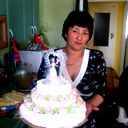Report of Translation Practice
In this year the students in our group had the practice of translation. It consisted of two parts. The first part was the translation, and the second was interpreting. I used a variety of dictionaries and books for work. I also worked and sought help from the supervisor.
Firstly let me tell us about translation. I have translated two films, «Desperate housewives» and «A history of Britain». I have carefully looked over the films. I can say that these films are very different in the vocabulary. A “History of Britain” is a BBC documentary series. It is a scientific film which is full of historical terms, dates and facts. The author uses a lot of specific vocabulary. This series gives us information about some facts and events that are important for Britain of that time. Another film is a comedy. Here is used colloquial vocabulary. Also in «Desperate Housewives» are many phrasal verbs, colloquial and slang.
Two audio lectures «Hardy and The Natural World» and «The Adventures of Tom Sawyer: American Paradise Regained» is part of the oral practice of translation. While working on the interpretation the most difficult moment was to deal with the pronunciation. But in spite of this, these lectures is very informative and filled with a special vocabulary.
I also translated the text about «Charlotte and Emily Вronte» and some biographies of well-known Belarusian people. The texts contain information about this writer’s life and work. I used some dictionaries to work with. It was necessary to pay attention to complicated grammatical constructions, contents and vocabulary. At first the texts were read, and then some key words and difficult moments were singled out. After that it was made an interlinear translation and in the end I checked the text and made some correction work. In the glossary it is written out the words of general use and special terms.
In my conclusion, I want to say that efforts have been made in the translation, and it took a lot of time. But it has its advantages. I filled out my vocabulary. I learned a lot of new and interesting things about the Brontes and a piece of British history. I also learned a lot about the Belarusian people, who contributed to the history of Belarus. With the help of the films I better understand English colloquial speech. I got acquainted with some slang words and expressions. My pronunciation became better while working with audio lections.
Лингвистика
Проверьте ошибки кому не тяжело!!!
...a variety of dictionaries and books for MY work.
...let me tell US ???
...these lectures ARE very informative...
...After that an interlinear translation was made and AT the
end I checked...
Как-то некрасиво звучит:
"In the glossary it is written out the words of general use and special terms."
"But it has its advantages."
...let me tell US ???
...these lectures ARE very informative...
...After that an interlinear translation was made and AT the
end I checked...
Как-то некрасиво звучит:
"In the glossary it is written out the words of general use and special terms."
"But it has its advantages."
Report of Translation Practice
This year the students of our group had a translation practice. It consisted of two parts. The first part was translation, and the second was interpreting. I used a variety of dictionaries and books for work. I also worked and sought help from my supervisor.
First let me tell you about/I'd like to look at the translation part. I have translated two films, «Desperate housewives» and «A history of Britain». I have carefully looked over(просмотреть не подходит) watched the films. I can sayI'd like to note that hese films are very different (differ greatly) in (their) vocabulary. A “History of Britain” is a BBC documentary series. It is a scientific (science - это естественные науки, к истории не подходит) film which is full (abounds in) of historical terms, dates and facts. The author uses a lot of special terminology. This series gives us information about facts and events important for Britain of that time (The film gives an insight into what was important for Britain at the time).THE OTHER film is a comedy. Colloquial vocabulary is used/prominent here. Also in «Desperate Housewives» THERE are many phrasal verbs, colloquial and slang (many...are used).
Two audio lectures «Hardy and The Natural World» and «The Adventures of Tom Sawyer: American Paradise Regained» ARE/were part of our oral practice(oral practice - это довольно двусмысленно) of translation. While working on the interpretation the most difficult moment was to deal with the pronunciation ( In interpretation, pronunciation was the most difficult part). But in spite of this, these lectures WERE very informative and filled with special vocabulary.
I also translated the text about «Charlotte and Emily Вronte» and SEVERAL biographies of well-known BelarusSian people. The texts contain information about THESE writerS' life and work. I used dictionaries (to work with). It was necessary to pay attention to complicated grammatical constructions, contents and vocabulary. At first the texts were read(by whom?), and then key words and difficult moments were singled out. After that, an interlinear translation was carried out, and in the end I checked the text and made some correction work. In the glossary it (it - это кто? Оно выписало? ) is written out the words of general use and special terms( I compiled a glossary of useful expressionas and special terms).
Inconclusion, I'd like to say that the translation took a lot of time and effort. But it(?) has its advantages. I enhanced my vocabulary. I learned a lot of new and interesting things about the Brontes and a piece of British history. I also learned a lot about the Belarussian people who contributed to the history of Belarus. With the help of the films I better understand English colloquial speech (The films allowed me to better understand...). I got acquainted with slang (). I improved my pronunciation while working with audio lections.
Много элементарных грамматических ошибок, небогатый вокабуляр, неумелое пользование словарем, отсутствие переводческого инструментария... Думаете по-русски. Такое впечатление, что переводу как таковому вас никто не учил, да и английскому тоже не очень.
This year the students of our group had a translation practice. It consisted of two parts. The first part was translation, and the second was interpreting. I used a variety of dictionaries and books for work. I also worked and sought help from my supervisor.
First let me tell you about/I'd like to look at the translation part. I have translated two films, «Desperate housewives» and «A history of Britain». I have carefully looked over(просмотреть не подходит) watched the films. I can sayI'd like to note that hese films are very different (differ greatly) in (their) vocabulary. A “History of Britain” is a BBC documentary series. It is a scientific (science - это естественные науки, к истории не подходит) film which is full (abounds in) of historical terms, dates and facts. The author uses a lot of special terminology. This series gives us information about facts and events important for Britain of that time (The film gives an insight into what was important for Britain at the time).THE OTHER film is a comedy. Colloquial vocabulary is used/prominent here. Also in «Desperate Housewives» THERE are many phrasal verbs, colloquial and slang (many...are used).
Two audio lectures «Hardy and The Natural World» and «The Adventures of Tom Sawyer: American Paradise Regained» ARE/were part of our oral practice(oral practice - это довольно двусмысленно) of translation. While working on the interpretation the most difficult moment was to deal with the pronunciation ( In interpretation, pronunciation was the most difficult part). But in spite of this, these lectures WERE very informative and filled with special vocabulary.
I also translated the text about «Charlotte and Emily Вronte» and SEVERAL biographies of well-known BelarusSian people. The texts contain information about THESE writerS' life and work. I used dictionaries (to work with). It was necessary to pay attention to complicated grammatical constructions, contents and vocabulary. At first the texts were read(by whom?), and then key words and difficult moments were singled out. After that, an interlinear translation was carried out, and in the end I checked the text and made some correction work. In the glossary it (it - это кто? Оно выписало? ) is written out the words of general use and special terms( I compiled a glossary of useful expressionas and special terms).
Inconclusion, I'd like to say that the translation took a lot of time and effort. But it(?) has its advantages. I enhanced my vocabulary. I learned a lot of new and interesting things about the Brontes and a piece of British history. I also learned a lot about the Belarussian people who contributed to the history of Belarus. With the help of the films I better understand English colloquial speech (The films allowed me to better understand...). I got acquainted with slang (). I improved my pronunciation while working with audio lections.
Много элементарных грамматических ошибок, небогатый вокабуляр, неумелое пользование словарем, отсутствие переводческого инструментария... Думаете по-русски. Такое впечатление, что переводу как таковому вас никто не учил, да и английскому тоже не очень.
Похожие вопросы
- топик на английском.проверьте ошибки если ине трудно,буду очень благодарна!!
- English. Проверьте ошибки в сочинение!
- Пожалуйста, проверьте ошибки (английский)
- Проверьте ошибки в стихотворении, пожалуйста)))
- кто хорошо разбирается в английском проверьте ошибки пожалуйста!!! --- >
- Проверьте ошибки плиз
- проверьте ошибки пожалуйста
- Проверьте ошибки(Англ. яз)?
- Люди знающие английский язык, проверьте ошибки
- Проверьте ошибки (англ. язык)


